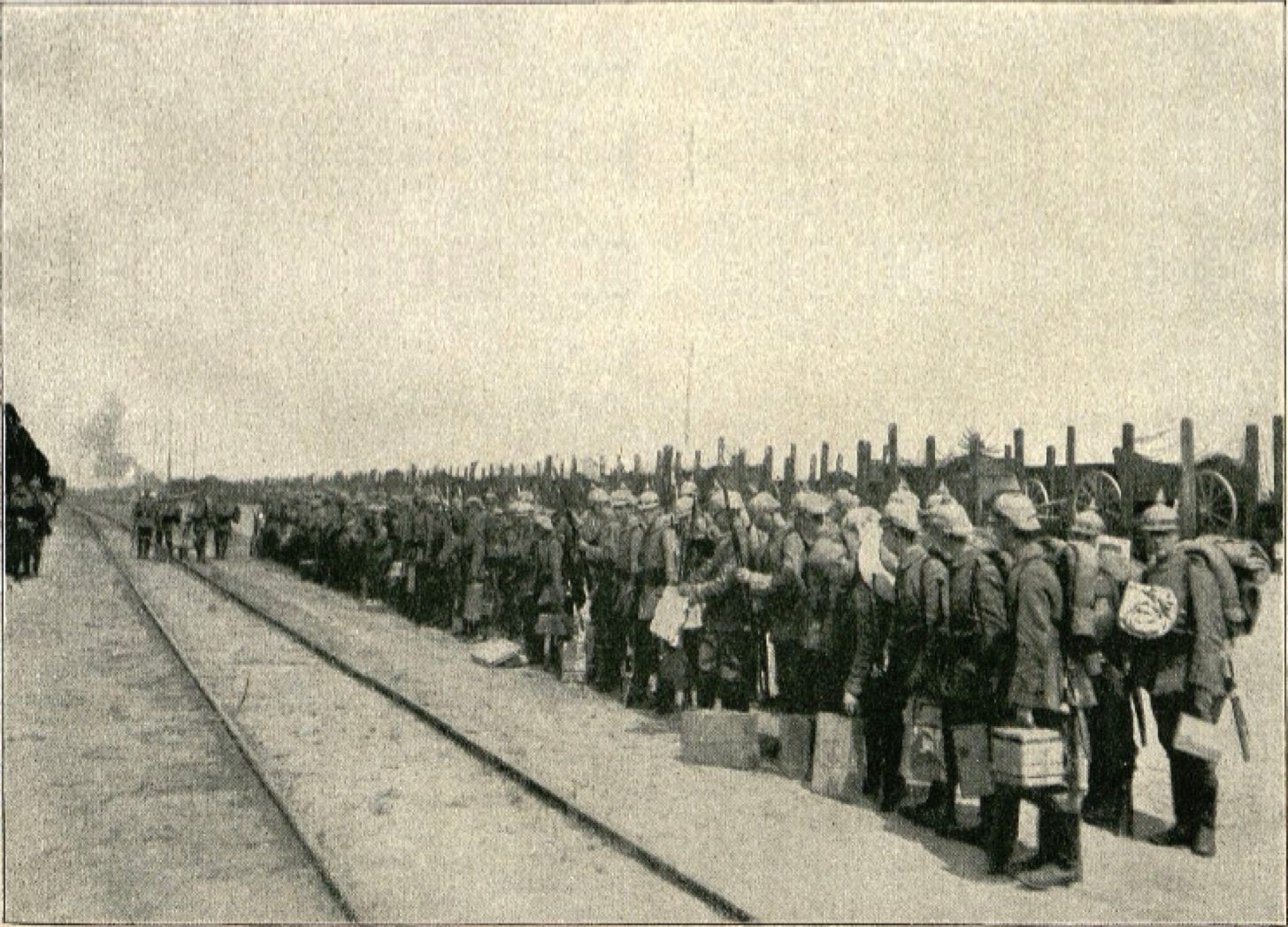Troop Transport Train
Diary of a Stosstrupp Leader (Part II)
A verbatim translation of part of a diary found in the German Federal Archives, this post continues the series begun with:
Please note that the names of places given reflects present-day usage. The names given in the diary appear within parentheses.
At 7:15 pm, on 2 October 1916 (7:15 pm), I departed from Morhange in a troop train.
Lieutenant Spengler took charge of the three hundred troops [from the Ersatz Battalion going out to the Eastern Front [to reinforce our regiment]. The party included Ensign (Fähnrich) Pluns, Ensign Camphausen and four officer candidate sergeants (Fahnenjünker-Unteroffiziere): Kern, Hartmann, Linn, and Lydding.
The trip took us through Sarrebourg (Saarburg), Strasbourg (Straßburg), Lauterbourg (Lauterburg), Germersheim, Frankfurt am Main (where, during a stop that lasted from 1:10 am to 5:10 am, we enjoyed a good meal in the waiting room), Fulda, Bebra (lunch), Weimar, and Apolda.
On 4 October 1916, [the journey continued through] Grosskorbetha (Corbetha), Leipzig, Dresden (billets in the Golden Apple), Bautzen, Görlitz, Pieńsk (Pentzig), Węgliniec (Kohlfurt), Zebrzydowa (Siegersdorf), Bolesławiec (Buntzlau), Legnica (Liegnitz), and Wrocław (Breslau) (where, at four in the afternoon on 5 October 1916, the inhabitants received us with great enthusiasm. We slept on straw mattresses in a school building.
[On 6 October 1916], we enjoyed a break in our journey that lasted until 7:00 pm. We bought maps and map cases. The size of our party grew to eight hundred men.
Our journey resumed, [taking us through] Skolmersyn (coffee and ham), Colmisky, Rogów (Regow) (where we bought butter and plums from the Polish inhabitants who came aboard the train), Schiradow, Pruszków (Proschkow), Włochy (Wlochy), Warsaw and Miloska.
With its thatched cottages and seemingly endless plains, the landscape differed little from one place to the next.
Glinting against the horizon in the afternoon sun, the gold-covered onion domes of Warsaw made a powerful impression.
On 7 October 1916, [we passed through] Brest-Litowsk (pea soup and coffee), Kovel (Kowel) (festooned with flags to celebrate a recent visit by the Kaiser), Turopin (goulash and bread), Tamehoy, Volodymyr (Wladimir Wolinsky), and Ivanychi (Iwanice). At 9:30 pm we traveled to Rachin (Radschin) by military railroad (thirty-five kilometers). From there, we marched five kilometers to the village of Ozertsi (Jierce), where we slept on piles of straw.
To be continued …
Sources
The photo was published on page 317 of the fifth volume of the magazine Illustrierte Geschichte des Weltkrieges 1914/15 (Illustrated History of the World War 1914/1915). (Link to the State Library of Upper Austria.) It has been modified by the expansion, by a factor of three, of the portion that depicts the sky.
The text comes from Alwin Lydding Meine Kriegstagbuch (My War Diary), unpublished manuscript, Bundesarchiv (German Federal Archive) N 382/1




